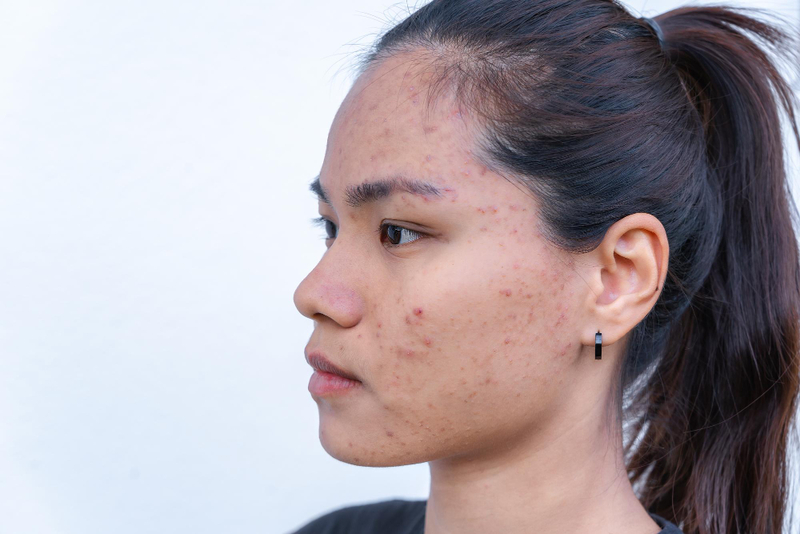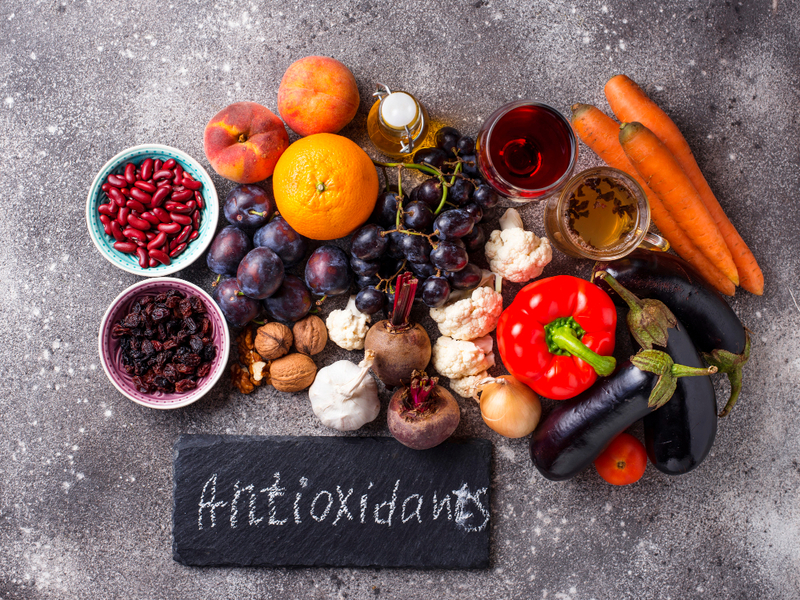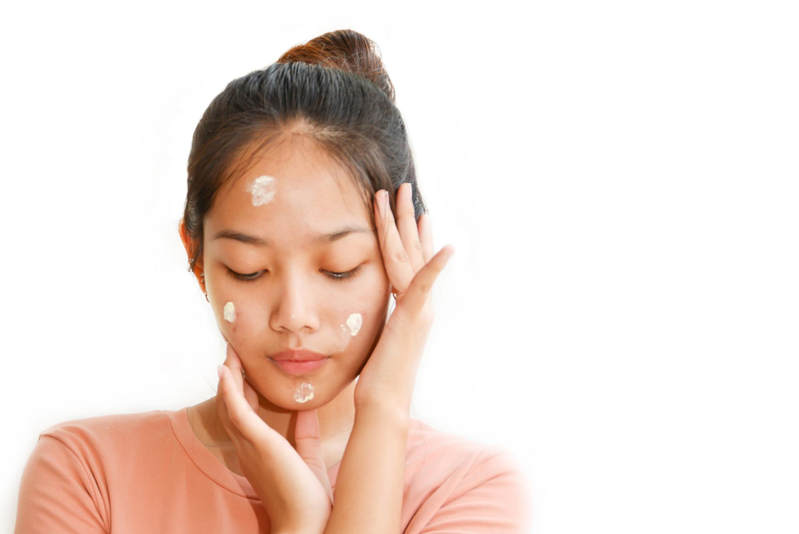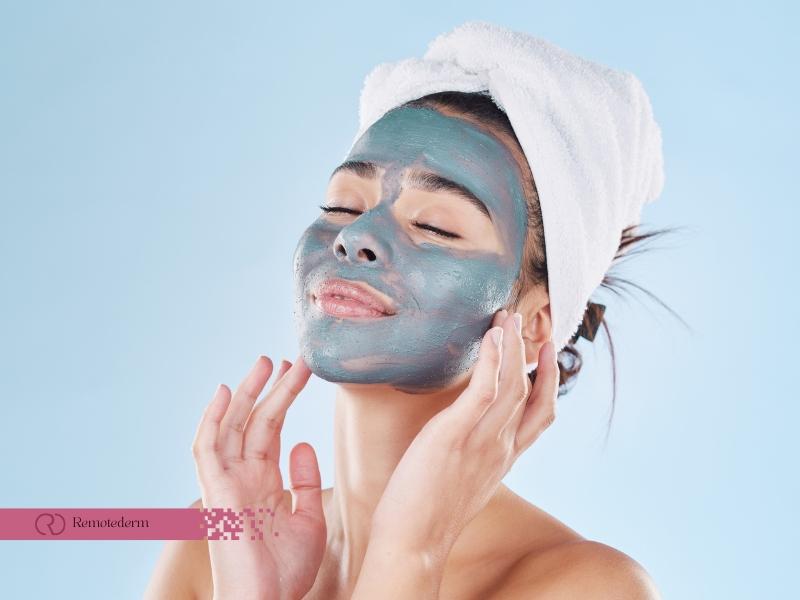Acne self-care is an essential pursuit for those living with the challenging experience of acne vulgaris, a condition causing not just physical discomfort but also psychological distress for a wide demographic. Understanding the scientific nuances of acne and implementing a regimented self-care approach rooted in research is empowering, enabling individuals to take control of their skin health. This article is dedicated to unraveling the complexities of acne vulgaris and guiding readers through the development of personalized acne self-care strategies, providing insight into its causes, triggers, and evidence-based treatments, all aimed at the ultimate goal of clearer skin.
What Causes Acne Vulgaris?
Acne vulgaris is a multifactorial skin condition influenced by both internal and external elements that disrupt the skin’s natural balance. Understanding these underlying causes is key to effective management and treatment of acne.
- Hormonal Imbalances: Increases in androgens can enlarge oil glands and boost sebum production, whereas menstrual cycles can trigger acne in women.
- Dietary Influence: High glycemic foods and dairy may worsen acne; conversely, foods high in omega-3s and antioxidants might protect against inflammation.
- Bacterial Growth and Inflammation: Excess sebum allows Propionibacterium acnes to thrive, which, coupled with the body’s immune response, leads to inflammation.
- Environmental Factors: Pollutants and high humidity contribute to clogged pores, while stress can increase hormone fluctuations and sebum production.
- Genetics: Some individuals are genetically predisposed to produce more oil or have a higher inflammatory response to bacteria, leading to acne.

Comprehensive Self-Care for Acne
Embark on a journey towards clearer skin with our thorough self-care regimen for acne management. Keep reading to learn about the integration of precise skincare habits, discerning product use, and holistic lifestyle, and dietary modifications for improved skin clarity and health.
Daily Skincare Routine
A meticulous daily skincare routine lays the foundation for managing acne. Start with a gentle, hydrating, non-comedogenic cleanser to purify the skin while maintaining its natural oils. Employ acne-fighting ingredients selectively:
- Salicylic acid to exfoliate and clear pores
- Benzoyl peroxide to kill acne-causing bacteria and reduce inflammation
Sealing the deal with an oil-free, non-comedogenic moisturizer keeps skin supple and protected without contributing to further breakouts.
Products to Avoid
Navigating the vast sea of skincare products requires discernment to avoid those that may aggravate acne.
- Avoid heavy, pore-clogging creams and occlusive ointments.
- Skip astringent lotions high in alcohol content, which overly dry the skin.
- Forego abrasive physical exfoliants that can lead to micro-tears in the skin.
Lifestyle Adjustments for Better Skin Health
A holistic approach to self-care, encompassing both mental and physical wellness, can improve skin health:
- Implement stress reduction through mindfulness or deep-breathing exercises.
- Ensure a regular sleep schedule promoting repair and renewal of skin cells.
- Adopt regular exercise to enhance circulation and detoxification through perspiration.
Nutrition Tips for Managing Acne
Mindful nutrition choices can be an ally in acne prevention. A diet rich in certain foods can support clearer skin:
- Embrace a diet high in antioxidants from colorful fruits and vegetables.
- Lower intake of high-glycemic foods and dairy, which have been linked to acne.
- Stay hydrated with water, aiding detoxification and skin hydration.

Advanced Treatments for Acne
In the realm of acne self-care, over-the-counter (OTC) medications often serve as a first-line defense and can be instrumental in managing mild to moderate acne. These products typically contain active ingredients like benzoyl peroxide, which targets surface bacteria, salicylic acid, which facilitates exfoliation and pore clearing, and adapalene, a mild retinoid that regulates skin cell turnover. Each of these ingredients has unique properties that contribute to the reduction of acne lesions, and can often be found in various combinations within OTC offerings.
However, for persistent or severe cases of acne, OTC treatments may not suffice, and that is where prescription medications come into play. Prescribed by a dermatologist after a thorough evaluation, these stronger treatments can be game-changers in the fight against acne.
Prescription Treatments
- Topical Retinoids: These vitamin A derivatives, such as tretinoin and tazarotene, are designed to prevent the clogging of hair follicles, which is a primary cause of acne. They also promote quicker cell turnover, thereby aiding in the reduction of inflammation and the improvement of skin texture.
- Oral Antibiotics: Medications like doxycycline and minocycline are utilized to combat excessive bacterial growth and reduce inflammation within the skin. They are often prescribed for moderate to severe acne, especially when it’s characterized by red, swollen types of pimples.
- Birth Control Pills: Hormonal therapies that include estrogen and progesterone can regulate hormone-induced acne, frequently seen in women. They work by lessening the effects of androgens, which can decrease sebum production.
- Isotretinoin: For severe cystic acne or acne that is resistant to other treatments, isotretinoin can be a powerful option. It dramatically reduces the size of oil glands and sebum production, leads to sustained clearing of acne, and can even provide relief from scarring.

Effective Acne Prescription Management
Effective acne treatment is highly personalized, as what works for one patient may not for another, necessitating professional supervision. Dermatologists typically employ a multi-faceted approach that includes both topical and oral medications tailored to individual triggers of acne, and they closely monitor each patient’s progress and any potential side effects. It is also pivotal for patients to be patient, as many acne prescription treatments demand weeks to months to manifest visible improvements. For more complex cases, dermatologists might incorporate supplementary treatments such as chemical peels, laser therapy, or injections to create a holistic treatment regimen, ensuring comprehensive care and optimization of patient health and satisfaction.
Final Thoughts
Achieving clear, healthy skin requires a deep understanding of acne’s scientific intricacies and a dedicated commitment to effective self-care. From establishing a daily skincare routine to exploring advanced prescription treatments, individuals can tailor their approach to the multifaceted causes of acne, including hormonal imbalances, dietary influences, and genetic factors. Dermatologists play a pivotal role in personalized acne management, ensuring treatments align with individual needs. Patience is key, as visible improvements may take time. This holistic journey emphasizes the ongoing nature of effective acne care—stay informed, be patient, and consult with professionals for optimal skin health and satisfaction.
FAQs
- Is it harmful to pop pimples as part of my acne self-care routine?
Yes, popping pimples can push bacteria and pus deeper into the skin, which may cause more swelling and redness, and even scars.
- Do I need to use a moisturizer if I have oily skin?
Yes, even oily skin needs hydration. Use an oil-free, non-comedogenic moisturizer to keep skin balanced.
- Can makeup cause acne?
Some makeup products can clog pores and exacerbate acne. Look for products labeled non-comedogenic.
- What’s the difference between acne and occasional breakouts?
Occasional breakouts are just that – occasional, and usually linked to specific triggers. Acne is a chronic skin condition with frequent, consistent breakouts.
